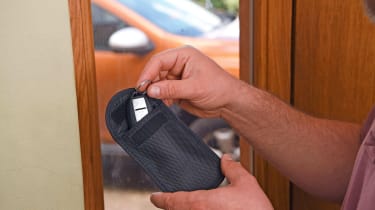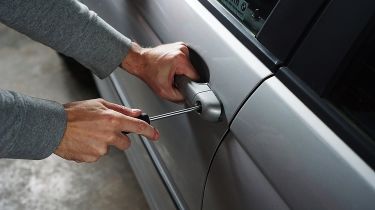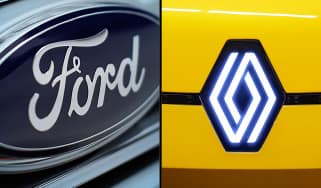What is an immobiliser and does my car have one?
In this guide, we explain what an immobiliser does and how it helps to protect your car from theft
First used in 1992, Immobilisers are security devices that have been compulsory on all new vehicles sold in England and Wales since October 1998. This means that as long as your car - or a car you are looking at buying - was first registered after that date, it will have this security feature as standard.
How do immobilisers work?
When you start your car with your key, the fob or key itself sends a code to the car’s Electronic Control Unit or ‘ECU’, which allows the engine to start. It does this by activating the microcircuit inside the key, which in turn sends a binary code to the ‘ECU’ allowing the engine to start and the car to be driven.
If the code sent from the key to the car’s electronic brain is not correct, then the ECU will not allow the engine to start, usually by disabling some components vital to the car starting such as the fuel, ignition or starter motor. The car is effectively immobilised.
Most immobilisers, when detecting the wrong code, or no code, being used to start the car will activate the alarm. Some systems in new high-end cars will also signal a security firm that an attempted theft is taking place. The security company will alert the owner via their phone and ask them to confirm that they are not with the vehicle and an attempted theft is, in fact, happening.
How safe are immobilisers?
Immobilisers have helped reduce car crime by a significant percentage since their introduction, in 2016 a study by the Economic Journal found that the immobiliser lowered the rate of car theft by about 40% between 1995 and 2008.
While some immobiliser systems can be bypassed and do have known weaknesses, they are or should be considered to be, only one part of a car’s security system to prevent theft. In most cases of theft, the bypassing of the immobiliser happens on the car rather than on the key that sends the code to the ECU and the sophistication of modern systems made it very difficult for cars to be stolen without the key

In more recent times, the advent of keyless entry and start systems on modern cars caused a rise in so-called ‘relay theft’ where thieves would use devices to copy the code emitted by the car’s key and broadcast it to fool the car’s electronics into thinking that the key was present. This would enable them to start the car and drive away without the immobiliser engaging. Manufacturers of the latest models have taken steps to make relay theft more difficult but worried car owners can store their car key in a signal-blocking Faraday bag to increase security.
What should car buyers look for when it comes to immobilisers and security?
The best starting point to is to ask the manufacturer or the dealer what security system is installed on the car. A good benchmark to compare different systems is the Thatcham car security categories (from 1 to S7) that rate different types of security system. The higher the Thatcham level, the more secure the car.
Despite these complex security systems installed by manufacturers, you should still always be cautious and think ahead about security for your car to reduce the chances of car theft. Park in safe places, keep your car keys secure and be generally vigilant when around your vehicle.
Check out the best steering wheel locks on sale here...





